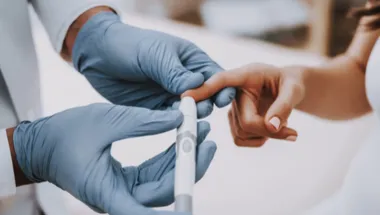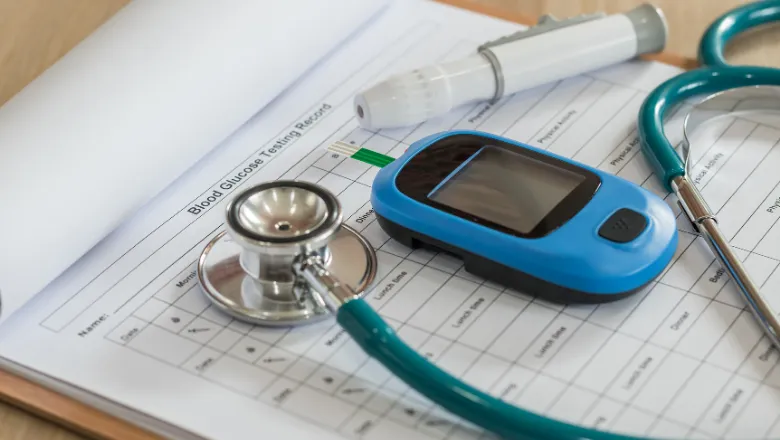
Professor Angus Forbes
Professor of Diabetes Nursing
Research interests
- Nursing
- Diabetes
Biography
Professor Angus Forbes holds the FEND Chair of Clinical Diabetes Nursing at King’s College London and has an honorary post as a specialist diabetes nurse at King’s College Hospital.
Professor Forbes is an active researcher with multiple publications in diabetes, some current and previous projects include: a pan-European survey of diabetes nurses on the impact of COVID-19; diabetes prevention in women with GDM; preconception care in women with Type 2 diabetes; evaluating a psychologically modelled education intervention for young people with Type 1 diabetes; developing supportive interventions for adults with new-onset Type 1 diabetes; the relationship between cognitive impairment and diabetic retinopathy; glycaemic variability and mortality and older people with diabetes; the impact of lipohypertrophy on glucose variation in people with Type 1 diabetes; and a trial of virtual clinics to improve primary care based diabetes outcomes.
Clinically Angus runs a motivational enhancement clinic for people with Type 1 diabetes. He also leads the diabetes MSc programme and has a number of funded PhD students. He has contributed to national guidelines for older people in hospitals, end-of-life care; and dementia care for people with diabetes. Angus is a past vice-president of the International Diabetes Federation. His previous positions include Senior Lecturer in Diabetes at King’s College London; a Lecturer in Health Services Research at University College London Medical School; and a Health Visitor and District Nurse in East London.
Research interests:
Main research areas:
- The development and evaluation of clinical, psychological and educational interventions to enhance diabetes care and outcomes
- Reproductive health in women and pregnancy in diabetes
- Diabetes in older people
- Diabetes in younger people (transition)
Methods: clinical trials; evaluations of complex interventions; epidemiological studies (using large dataset); data synthesis; and qualitative research to model areas for intervention.
Enquiring about potential PhD supervision
If you’re thinking of applying for one of our PhD programmes and are looking for potential supervisors, please email nmpc_pgr_enquiries@kcl.ac.uk listing the names of the supervisors you’ve identified as having expertise in your chosen area, along with your CV and a short research proposal. Our Postgraduate Research Team will contact supervisors on your behalf and get back to you.
If you have any queries in the meantime, please use the email address above, rather than contacting potential PhD supervisors directly, because they are unable to respond to initial enquiries.
Research profile
Research

Pre-pregnancy Care for Women with Type 2 Diabetes
The PREPARED study is an integrated primary care-based programme of pre-pregnancy care to improve pregnancy outcomes in women with type 2 diabetes.
Project status: Ongoing

Ageing Research at King's (ARK)
Cross faculty consortium addressing ageing and healthy longevity.

Better Health & Care Hub
A world-leading cross-university development in research and education.
News
New study highlights urgent need to alleviate impact of pandemic on people with diabetes
Diabetes nurses across Europe have reported increases in physical and psychological problems for people living with diabetes during COVID-19.

Events

Supporting the lived experiences of people with non-type 1 diabetes
Join us for this webinar that explores innovative approaches to supporting people living with or at risk of type 2 and gestational diabetes, with a particular...
Please note: this event has passed.
King's Faculty of Nursing, Midwifery, Palliative Care Research Seminar Series - June
Professor Glenn Robert, Vice Dean Research and Impact, presents the Research Seminar Series
Please note: this event has passed.
- MSc Diabetes Clinical Care and Management
- Clinical Research in Diabetes (60 Credit Module)
- Diabetes Clinical Care and Management (60 Credit Module)
Research

Pre-pregnancy Care for Women with Type 2 Diabetes
The PREPARED study is an integrated primary care-based programme of pre-pregnancy care to improve pregnancy outcomes in women with type 2 diabetes.
Project status: Ongoing

Ageing Research at King's (ARK)
Cross faculty consortium addressing ageing and healthy longevity.

Better Health & Care Hub
A world-leading cross-university development in research and education.
News
New study highlights urgent need to alleviate impact of pandemic on people with diabetes
Diabetes nurses across Europe have reported increases in physical and psychological problems for people living with diabetes during COVID-19.

Events

Supporting the lived experiences of people with non-type 1 diabetes
Join us for this webinar that explores innovative approaches to supporting people living with or at risk of type 2 and gestational diabetes, with a particular...
Please note: this event has passed.
King's Faculty of Nursing, Midwifery, Palliative Care Research Seminar Series - June
Professor Glenn Robert, Vice Dean Research and Impact, presents the Research Seminar Series
Please note: this event has passed.
- MSc Diabetes Clinical Care and Management
- Clinical Research in Diabetes (60 Credit Module)
- Diabetes Clinical Care and Management (60 Credit Module)
